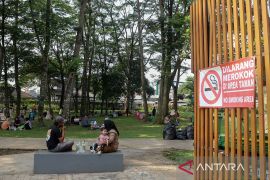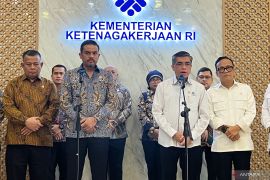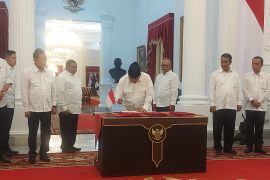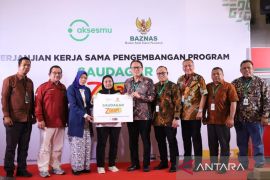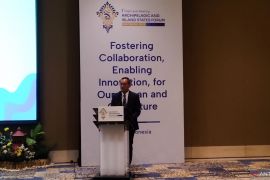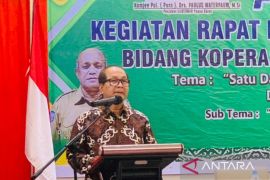"Foreign investment is needed to move the wheel of the economy while the interest of small businesses should continue to be protected," the Coordinating Minister for Economic Affairs said here Sunday.
Although the government has opened several business fields for foreign investors, yet business sectors which need a capital of less than Rp10 billion with small risks and using modest technology, will not be opened for foreign investment, Darmin explained.
The government has earlier assured it would revise the DNI which is included in its tenth economic policy package announced Thursday last week. The tenth economic package has the aim of ending the control by certain groups of certain economic fields and of protecting micro, small, medium-sized entrepreneurs (SMEs) and cooperatives.
The policy does not constitute liberalization because it has the aim of developing the national geopolitical and geo-economic potentials by increasing creativity, synergy and ability in absorbing technology in the openness era.
"Besides enhancing employment opportunities and strengthening working capital, the policy is also intended to develop national companies so that they would be able to compete and become strong in the domestic and global markets," Darmin noted.
The government has revised Presidential Decree (Perpres) No. 39 of 2014 on the List of Business Fields Closed and Business Fields Open with Conditions to Investment in the Investment Sector known as the DNI.
On the list, the government regulates a business partnership aimed at encouraging domestic and foreign companies to cooperate with SMEs in expanded 62 economic fields from previously 48 sectors to 110 sectors.
The government also removed 35 economic sectors from the DNI so that they were 100 percent open to foreign investors. These sectors included crumb rubber; cold storage; tourism businesses such as restaurants, cocktail lounges, caf�, recreation centers, arts and entertainment; sports centers; and film industry.
It also covered online electronic trade transactions of over Rp100 billion; formation of telecommunication equipment testing institution; toll roads; non-hazardous garbage management and disposal business; and medicine raw material industry.
The head of the Capital Investment Coordinating Board (BKPM), Franky Sibarani said, meanwhile, that the announcement of the new DNI in the current first quarter of the year will have a positive impact on the governments efforts to realize its investment target of Rp594.8 trillion in 2016.
"The revision of the DNI offers certainty to business players, both domestic and foreign investors," Franky pointed out.
The government, on Thursday, last week, announced its tenth economic policy package aimed at boosting investment and protecting SMEs as well as cooperatives.
Through the package, it increased the number of reserved business areas for SMEs and cooperatives by 19 additional business sectors. The new arrangement has been made following the revision of Presidential Decree (Perpres) No. 39 of 2014 on the List of Business Fields Closed and Business Fields Open with Conditions to Investment in the investment sector (DNI).(*)
Editor: Heru Purwanto
Copyright © ANTARA 2016

